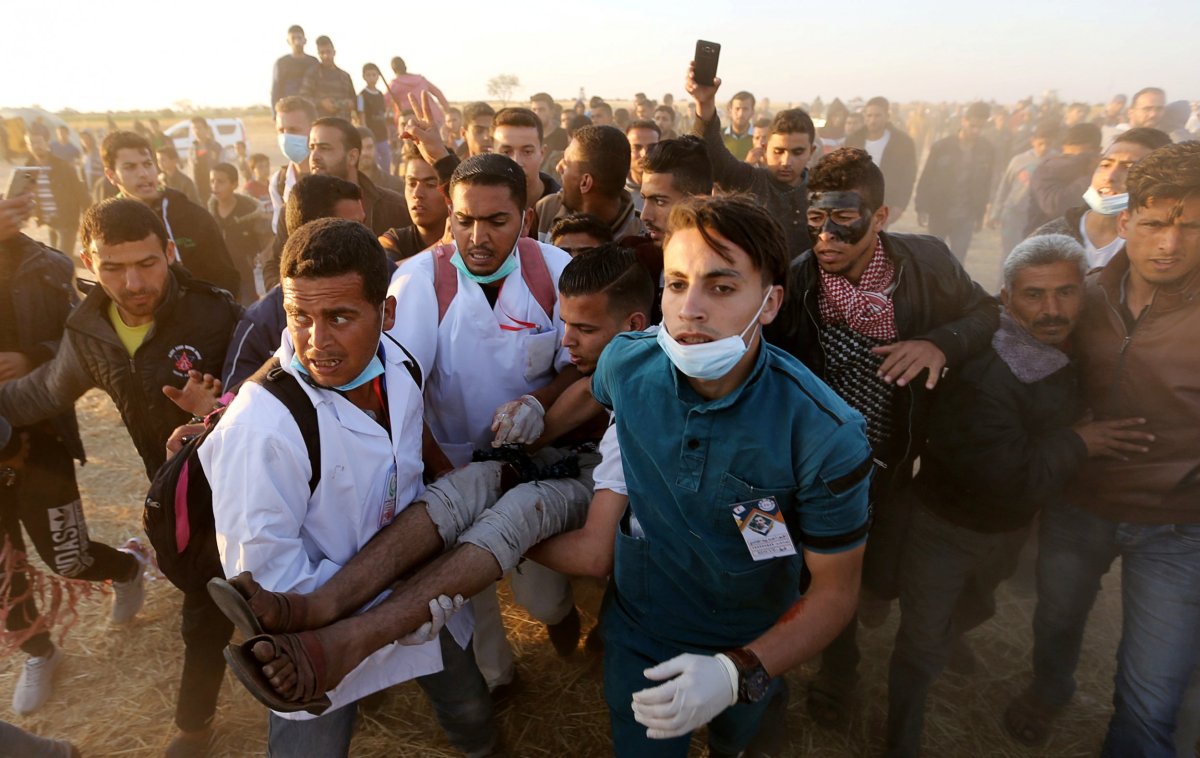The on-going protests in Gaza have been a long time coming. They are also a wake-up call for the international community. According to any indicator, conditions in the Strip have become unsustainable. What little hopes Gazans had left have been dashed by failure of the latest round of intra-Palestinian reconciliation talks to deliver any improvements to their daily lives.
For the last eleven years, Gaza's inhabitants have been under a joint air, sea, and land blockade imposed by Israel and Egypt. In addition, they face the legacy of three wars with Israel which have degraded Gaza's infrastructure and killed thousands, and more recently, sanctions imposed by President Mahmoud Abbas's Palestinian Authority against Hamas and Gazans alike. The consequence is a man-made social, economic, and humanitarian crisis that will make Gaza unliveable by 2020 according to the UN.
Against this backdrop, it can be of little surprise that the anger and frustration felt by average Gazans has driven tens of thousands to protest—largely non-violently—along the border with Israel. While Hamas and other Palestinian factions have played an important supporting role, these protests are driven at the grassroots level by Gazan civil society which remains resilient despite numerous constraints.
Of course, these protests are useful for Hamas, which has allowed the emergence of a carefully controlled space for popular mobilisation. In doing so, Hamas hopes to deflect popular anger over the worsening humanitarian conditions away from it, and towards Israel and the PA. This is partly a means of short term survival, partly an attempt to leverage an easing of restrictions on the Strip. To a certain extent, this also reflects a debate within the Islamist movement about the merits of non-violence in its struggle against Israel.
Hamas's embrace of protests as a political tool could not be more different from Abbas who has sought to constrain and de-mobilize Palestinian civil society in the West Bank. The lack of any large-scale mobilizations by Palestinians there, either in support of Gazans, or against Israeli settlements, has less to do with popular apathy, and more to do with PA restrictions, through the detention of Palestinian activists, restrictions on freedom of expression, and close security cooperation with Israel.
Back in Gaza, results remain mixed two weeks into the protests. Protestors have put Israel on the backfoot, both on the ground and in the international spotlight, momentarily shown-up Abbas, and shifted the plight of Gaza back up the list of urgent crises facing world leaders. But the protests have not yet been a game-changer. Israel has inflicted a high Palestinian casualty rate, and prevented protesters from penetrating its border fence on mass, at a so far manageable cost in its foreign and media relations. Protesters have also done little to convince Abbas to reverse his policy. In fact, he has doubled down on his anti-Hamas rhetoric, and withhold the salaries of the thousands of PA civil servants based in the Strip.
All eyes are now focussed on what will happen in mid-May when Gaza's protests culminate with Palestinian commemorations of the Nakba, Israel's seventieth anniversary, and the inauguration of the new U.S. embassy in Jerusalem. Israel and Abbas no doubt hope that the protests will slowly burn themselves out after that. But this misses the genuine sense of anger, disillusionment, and hopelessness that has driven protestors, and that will continue to build absent any positive changes to their situation. The possibility that UNRWA may be forced to reduce its services in June due to U.S. budget cuts, and threats by Abbas take further "national, legal, and financial measures" against Gaza will further increase volatility.
For now, at least, Hamas has chosen to confront Israel through non-violent means, and avoid renewed military confrontation. Besides averting even more suffering for Gazans, its embrace of protests should be seen as positive, if incomplete, response to international demands that it renounce violence. But this shift is jeopardised by the lack of any real improvements on the ground, and little international accountability for Israel's continued use of disproportionate force against protestors, both of which risk a return to more violent Palestinian responses.

A rapid easing of Gaza border restrictions would therefore be an important step in cooling tensions, while potentially also demonstrating that non-violent resistance can deliver results. Egypt has indicated it may allow for the more regular opening of its Rafah border crossing with Gaza. There is also much Israel could do without risking its own security, such as re-extending the maritime fishing zone, and restoring permits for Gaza businessmen. Even the White House has voiced nominal support for the long term economic development of the Strip. This is not to mention the financial boon that would come from developing Gaza's off-shore gas field.
But neither short-term humanitarian fixes, nor long-term economic development, can deliver a sustainable and dignified future for Gazans absent concomitant progress on the political front. This requires a serious international effort to support Egyptian sponsored reconciliation talks between Hamas and Fatah, pressure on Abbas to roll-back his punitive sanctions against Gaza, and greater international willingness to engage with Hamas as a legitimate Palestinian political actor. Such steps may appear distasteful to some, but they are the only way to break out of the current cycle of violence and destruction that has ensnared Gaza's inhabitants.
Hugh Lovatt is a Policy Fellow with ECFR's Middle East and North Africa Programme. During this time, he has focussed extensively on Palestinian politics and worked to advance the concept of "EU Differentiation", which was enshrined in UN Security Council Resolution 2334. He is regularly interviewed or quoted in international media, including by AFP, Reuters, Newsweek, France24, and Al Jazeera.
Uncommon Knowledge
Newsweek is committed to challenging conventional wisdom and finding connections in the search for common ground.
Newsweek is committed to challenging conventional wisdom and finding connections in the search for common ground.
About the writer
To read how Newsweek uses AI as a newsroom tool, Click here.








